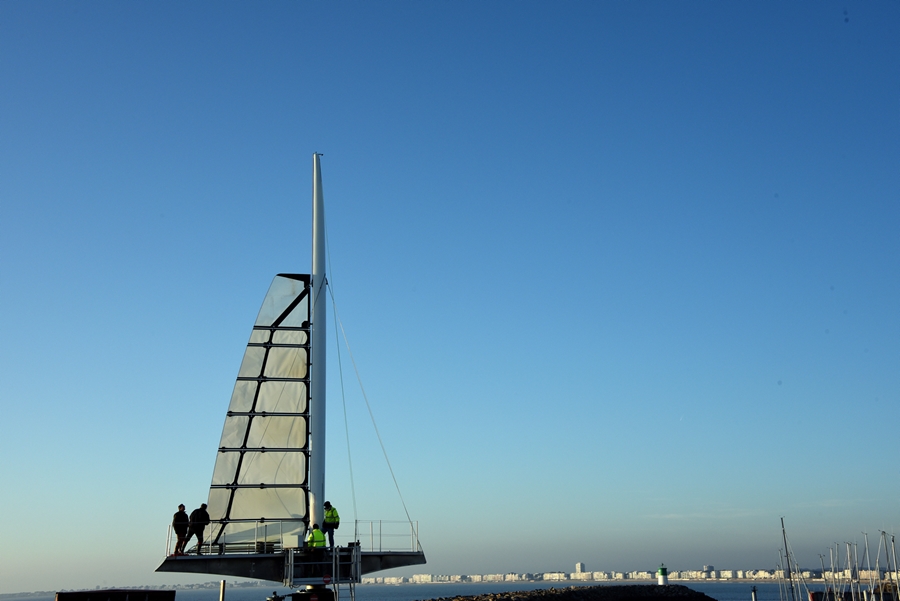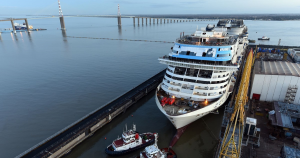Following one year of successful tests for Solid Sail aboard the ship Le Ponant, Chantiers de l’Atlantique hope to validate a second-generation sail model. To consolidate this concept, the company contacted Capacités, who has proven expertise in two complementary techniques: strain-gauge instrumentation and fiber optics.
A 1/5 scale demonstrator that reproduces the mechanical behavior of the rigging was installed at the end of 2019 at the port of Pornichet, to test the boat’s mast and sail over several months in outdoor conditions; the demonstrator is placed on the ground and does not move.
Capacités instrumented this mast with a single twenty-meter long optical fiber with Rayleigh backscattering, along with strain gauge patches. With these two complementary techniques, the force (torsion, traction et bending) and strain on the mast could be
analyzed and measured. On the sail, strain gauges were glued to assess the stress on the rigid panels that make up the sail, and highly specific force sensors were designed to measure the force between panels.
The R&D work entrusted to Capacités will be fed into digital simulation tools and will enable the final sail design to be validated for Solid Sail 2.0.
To successfully complete this project, the Capacités’ experts benefited from support and technical equipment from the GEM laboratory (Research Institute for Civil and Mechanical Engineering), joint research unit of the Université de Nantes, Centrale Nantes engineering school and CNRS (The French National Centre for Scientific Research).




